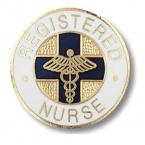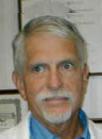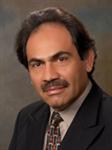The nurse assumes responsibility and acts with adequate authority, directly performing professional duties.
Nursing includes planning and assistance during illness and rehabilitation, considering the impact of various aspects of life on health, disease, disability and death.
The goal of nursing is to assist in gaining and maintaining health, allows a person to live a full rich life, feeling the satisfaction and joy of it and realizing its full physical, emotional and intellectual potential.
The main functions of the Nursing
1. Implementation of nursing care: patient care, preventive and rehabilitation measures, psychological support for the patient. In the task of the nurse enters a patient needs analysis, identifying the main problems related to the violation of his health, a plan patient care and its implementation.
2. Training function includes an analysis of the level of knowledge and skills relating to the maintenance and improvement of human health, the collection and structuring of required information, filing it in an accessible form, to facilitate the acquisition of knowledge and mastering skills. This function involves training not only patients but also healthy people, including professional colleagues.
3. Work as a part of the medical team. Depending on the situation, the nurse acts independently or perform the doctor's instructions. Its mission is to interact with the patient and his loved ones, as well as with their colleagues in order to develop a plan to care for the sick and its implementation.
4. Talk with the patient, during which to the patient explain plan of care and jointly assess its effectiveness.
5. Perfection activity of nurses as a result of ongoing research.
The duties of a Registered Nurse:
- Treating sick and injured patients.
- Taking a record of a patients symptoms and medical history.
- Patient follow-up and rehabilitation support.
- Educating patients on post-treatment and home care needs.
- Providing advice and support (both medical and emotional) to the families of the patient.
- Promoting general health by educating the public on warning signs and symptoms of disease.
- Performing and analyzing the results of diagnostic tests.
- Administering medication and treatments.
- Operating Medical Equipment.
- Monitoring patient’s symptoms.
- Providing advice and support to the families of patients.
- Explaining diet, nutrition, and exercises to patients.
- Supervising Nursing Assistants and Licensed Practical Nurses.
- Assisting other healthcare professionals in the rehabilitation of patients.
Registered Nurses provide healthcare to patients and educate the public on different medical conditions. Becoming a Registered Nurse offers a fulfilling career. Once qualified, many registered nurses partake in continuing education programs. Continuing Education can advance the career of a Registered Nurse into one or more of the many diverse specialities that the nursing profession has to offer.
Hospital Nurses are typically assigned to work in one area such as ICU, surgery, maternity, paediatrics, emergency, or oncology, but sometimes Nurses can rotate among departments. The State laws govern the tasks that a Registered Nurse can perform, but the daily tasks of a Nurse are dependant on where they work.
hide
 Registered Nurse (RN) specialize in the treatment of patients and help to establish patient care plans, and perform a wider variety of duties and will often train and supervise other nurses.
Registered Nurse (RN) specialize in the treatment of patients and help to establish patient care plans, and perform a wider variety of duties and will often train and supervise other nurses. 






